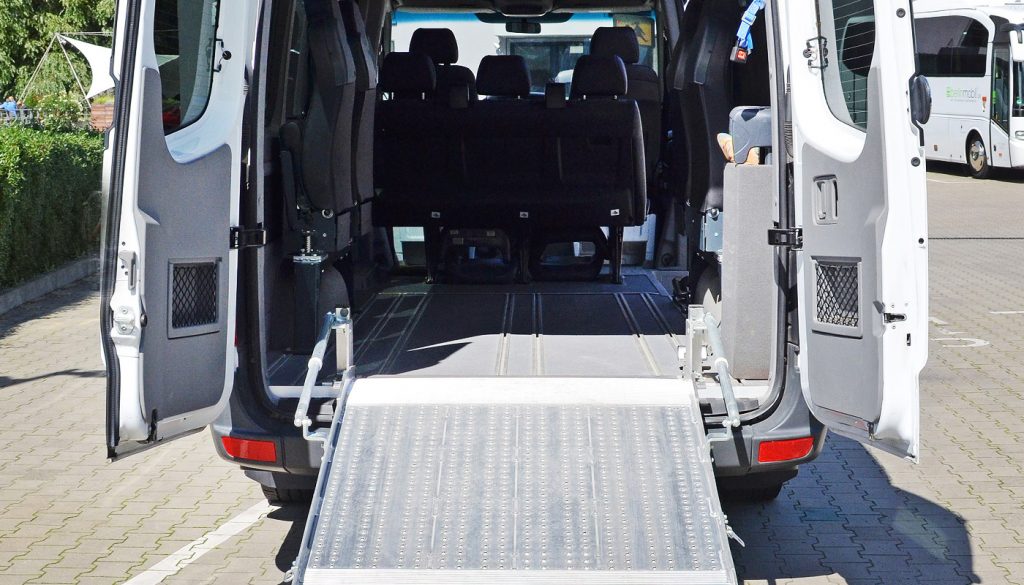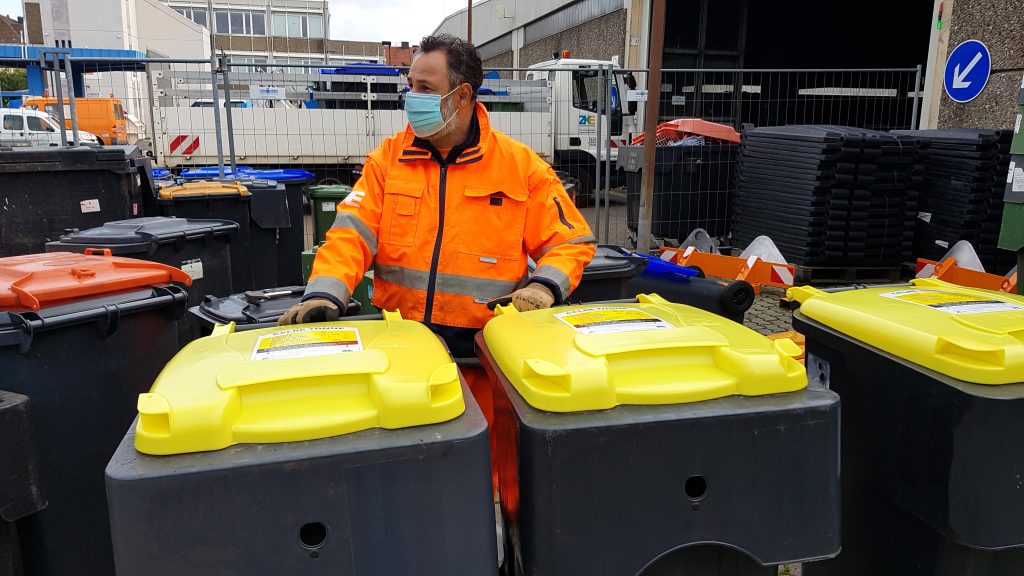Transporting 4,000 people around Berlin every day is already a big challenge. But this task is even more challenging when transporting people with physical or mental disabilities. The bus company BerlinMobil has specialised in precisely this area. And with great success too as passenger numbers are continuing to grow! There is a simple explanation for this: BerlinMobil places great value on orienting their services towards customers and on taking their individual needs into account. “We don’t transport boxes, we transport people with particular needs”, says Christian Günzel, Area Dispatcher for Student and Disabled Persons Transport, as he explains the philosophy of the company. At BerlinMobil, the human factor is the focus. For this reason, travel times are scheduled generously to allow for plenty of time, and the tours are adapted to customers' needs, therefore avoiding the development of any stressful situations for passengers.
Specialists in the transportation of people with disabilities
BerlinMobil started operating in 1990 with just one vehicle and five passengers. The company specialised in the transportation of disabled people and students right from the start and made a name for itself in this area. Today, 180 employees (drivers, dispatchers and attendants) take care of transporting around 4,000 passengers safely and comfortably from A to B each day. The people that they accommodate range from kindergarten-age children in wheelchairs to seniors suffering from dementia. The company collects the passengers from their home, residential homes or social facilities and takes them to kindergartens, inclusive schools, sheltered workshops and integration workspaces, or to care and rehabilitation establishments.
Not only is the transport company equipped with technically perfect and standard-conforming wheelchair-accessible vehicles, but BerlinMobil also employs specially trained attendants who can provide assistance when needed and can intervene in the event of unforeseen events, like if someone suffers from an epileptic seizure or uncontrolled movements for example. This means that while the attendant is taking care of any events taking place in the vehicle, the driver is able to fully concentrate on the road and traffic. In addition, the difference between regular journeys, like trips to school, kindergarten or work, and irregular journeys, like the transportation of people needing care to day care or to a rehabilitation appointment, must be taken into account.
BerlinMobil operates all across Berlin and particularly focuses on short distances: “We only do journeys that are no longer than 90 minutes, as we cannot reasonably expect one of our passengers to travel for any longer than this,” says Günzel, highlighting how important the company believes it is to consider the particular needs of their passengers.
An individual, adjustable journey planning software is needed in order to be able to take not only temporal and economic requirements into account, but also the needs of the passengers. When it comes to journey planning with BerlinMobil, it’s not about organising the shortest journey, but about guaranteeing a high quality of service. The basis for this is a tool that can plan journeys precisely yet flexibly and optimise them too. Even if Christian Günzel and his team have a map of Berlin memorised almost in its entirety, manual dispatching with Excel tables and journey planning with Google Maps has its limits. Especially since their passenger volume has quadrupled in the past ten years.

BerlinMobil has chosen TransIT
When looking for a journey planning software that takes the specific requirements for the transportation of disabled people into account, TransIT was the best option. The journey planning software for passenger transportation can set parameters that can be applied when checking the availability of journeys. For example, you can choose between “Wheelchair user” and “Non-wheelchair user”. Most software services cannot offer options such as this. Even time – one of the most important criteria when it comes to the transportation of disabled people – can be precisely controlled with TransIT. The use of Google Maps gives a completely unrealistic idea with regards to this as it cannot plan for the times needed.
Highest level of service thanks to flexible planning
“We don’t always take the most logical path, instead we take the one that is best for our customers”, explains Christian Günzel. “If a passenger needs to be collected at 6.30am but the next passenger, who may live on route, needs to take their medication first, we’ll simply travel from A to B via C. Here TransIT provides us with excellent support and gives us journey recommendations for the desired collection times. These ‘soft’ factors can be easily controlled with TransIT, and that’s what makes the difference.”
The Outcome
- The specific criteria with the transportation of disabled people can be taken into account
- High flexibility, customer orientation and excellent quality of service
- Establishment of the software in company-specific interfaces and processes
- High customer satisfaction rate







